New Scientist covers the latest developments in science and technology that will impact your world. New Scientist employs and commissions the best writers in their fields from all over the world. Our editorial team provide cutting-edge news, award-winning features and reports, written in concise and clear language that puts discoveries and advances in the context of everyday life today and in the future.
Elsewhere on New Scientist
Why look back? • Revisiting the coronavirus outbreak five years on can help us in many ways
New Scientist
WHAT COULD CAUSE THE NEXT PANDEMIC? • Covid-19 won’t be the last global outbreak, so we need to be prepared, says Michael Le Page
Timeline • These are the key events of the covid-19 pandemic, from first infections to the end of the emergency
WHAT WE KNOW ABOUT LONG COVID • Even mild covid-19 can have complications, which we are still trying to understand, writes Michael Marshall
HAVE WE LEARNED THE LESSONS OF COVID-19? • Science initially struggled in the face of the pandemic, but now we know much more, reports Penny Sarchet
THE UNANSWERED QUESTIONS • When the first signs of an unknown virus began showing up in Wuhan, China, in December 2019, scientists raced to understand what was happening. In the five years since, they haven’t stopped running, with over 1 million papers published about SARS-CoV-2 and covid-19. Yet despite this outpouring, some big scientific questions about the virus remain, finds Graham Lawton
A NEW ERA OF VACCINES • mRNA technology altered the course of the pandemic – and has potential for much more, says Grace Wade
The covid-19 time warp • Many of us experienced time differently in the pandemic. Learning why can help us, say Ruth Ogden and Patricia Kingori
No planet B • Defossilise your life Everyday household products are made almost entirely from newly extracted fossilised carbon. But there is an exciting alternative, finds Graham Lawton
Covering covid
Your letters
Tune into 2025’s top TV • From Doctor Who to Apple Cider Vinegar, there are plenty of great sci-fi and science-inflected shows coming up this year, says Bethan Ackerley
The best of the best • New Scientist staff share their favourite sci-fi TV series of all time, from Quantum Leap to Black Mirror
Sci-fi movies to enjoy in 2025 • From M3gan 2 to 28 Years Later, this year is all about inventive sequels, series and remakes – plus some dazzling adaptations like Mickey 17, says Simon Ings
How to be an optimist • Optimism can be extremely beneficial – if it’s used in the right way. Sumit Paul-Choudhury wrestles with how to become a positive thinker
Dust to dust • The discovery of ancient human DNA in dirt opens a new window on prehistoric worlds, finds Laura Spinney
“Entangling your brain with a quantum computer could unlock higher levels of consciousness” • Hartmut Neven leads the Google lab that builds some of the world’s most powerful quantum computers. He tells Thomas Lewton how we might use them to test the idea that consciousness involves quantum phenomena
What day is it anyway? • A mathematical magic trick lets you work out the weekday of any date – with a little help from Lewis Carroll, says Peter Rowlett
Puzzles
Almost the last word
Tom Gauld for New Scientist
Feedback
Twisteddoodles for New Scientist

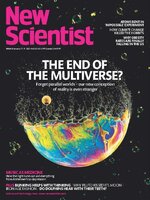 Jan 11 2025
Jan 11 2025
 Jan 04 2025
Jan 04 2025
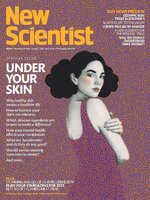 Dec 28 2024
Dec 28 2024
 Dec 14 2024
Dec 14 2024
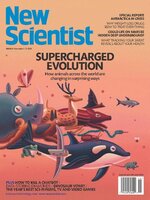 Dec 07 2024
Dec 07 2024
 Nov 30 2024
Nov 30 2024
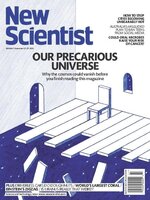 Nov 23 2024
Nov 23 2024
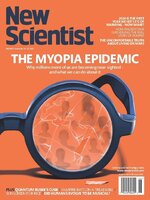 Nov 16 2024
Nov 16 2024
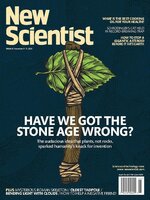 Nov 09 2024
Nov 09 2024
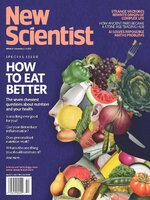 Nov 02 2024
Nov 02 2024
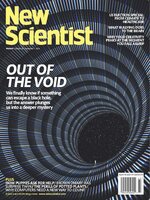 Oct 26 2024
Oct 26 2024
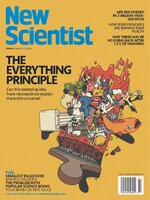 Oct 19 2024
Oct 19 2024
 Oct 12 2024
Oct 12 2024
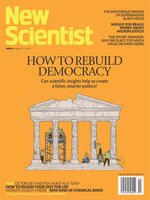 Oct 05 2024
Oct 05 2024
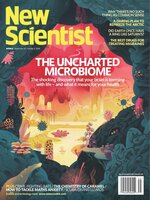 Sep 28 2024
Sep 28 2024
 Sep 21 2024
Sep 21 2024
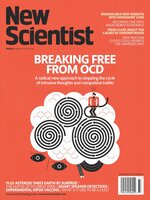 Sep 14 2024
Sep 14 2024
 Sep 07 2024
Sep 07 2024
 Aug 31 2024
Aug 31 2024
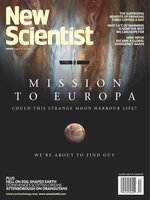 Aug 24 2024
Aug 24 2024
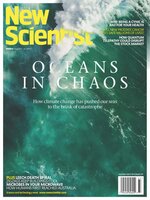 Aug 17 2024
Aug 17 2024
 Aug 10 2024
Aug 10 2024
 Aug 03 2024
Aug 03 2024
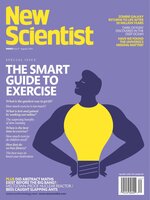 Jul 27 2024
Jul 27 2024
